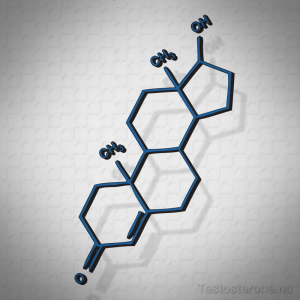
If your suffering from symptoms of low testosterone levels you're probably wondering, "why me?" The truth is in most cases there's nothing you could have done to prevent yourself from having lowered testosterone. The only real exceptions are people who abuse illegal anabolic steroids and people leading risky lifestyles leading to their contraction of HIV/AIDS and tuberculosis.
 There are two categories of underlying factors behind lowered testosterone. When the cause is in the testosterone producing organs is referred to as “primary hypogonadism.” When the cause is in the pituitary gland it is called “secondary hypogonadism.” When the problem is related to the hypothalamus it is referred to as ”tertiary hypogonadism.“
There are two categories of underlying factors behind lowered testosterone. When the cause is in the testosterone producing organs is referred to as “primary hypogonadism.” When the cause is in the pituitary gland it is called “secondary hypogonadism.” When the problem is related to the hypothalamus it is referred to as ”tertiary hypogonadism.“
Primary Hypogonadism:
- Undescended testicles – If the testes fail to migrate from inside the abdomen into the scrotum during fetal development or in the first year or two of life, the testes may become damaged and unable to produce adequate amounts of testosterone.
- Injury to the scrotum – If the testes are injured, they may not be able to produce adequate testosterone. Damage to one testicle does not often to lead to low levels if the other testis remains normal.
- Cancer therapy – Chemotherapy and radiation therapy can damage the interstitial cells in the testes responsible for testosterone production. This decrease in testosterone production may be temporary as the cells recover, or it may be permanent.
- Aging – Testosterone levels decrease with aging. Usually, enough testosterone is manufactured to allow for adequate bodily functions.
- Mumps orchitis – The mumps virus can cause inflammation of the testes in males, and if the illness occurs in puberty or adulthood, the damage to the testes may lead to low testosterone production. Immunization against the mumps has significantly decreased the incidence of this illness.
- Chromosomal abnormalities – A normal male has one X and one Y chromosome (a normal female has two X chromosomes). In Klinefelter’s syndrome, in males, an extra X chromosome is present and among other anatomic issues, there is abnormal development of the testes and decreased ability to manufacture testosterone.
- Ovary conditions in women – Premature ovarian failure and surgical removal of both ovaries (bilateral oophorectomy) are conditions associated with lower circulating testosterone levels.
 Secondary and Tertiary Hypogonadism:
Secondary and Tertiary Hypogonadism:
- Pituitary Gland Damage – Damage to the pituitary gland may occur because of tumors of the gland itself or because of damage caused by the side effects of treatment of nearby brain tumors.
- Malformed Hypothalamus – Hypothalamus malformations can prevent normal function. Kallman’s syndrome is one example.
- Circulation Problems – Compromised blood flow to these glands from other conditions such as excessive systemic blood loss.
- Disease Induced Inflammation – Inflammation caused by tuberculosis and sarcoidosis may affect the pituitary gland.
- HIV/AIDS Induced Inflammation – HIV and AIDS may also cause inflammation of both the hypothalamus and pituitary.
- Non-Prescribed Medications – Illegal use of anabolic steroids, for example in body building, can cause hypogonadism and low testosterone levels.
Symptoms of Low Testosterone
 The Endocrine Society (a professional organization of doctors who research and treat hormonal disorders) has issued a set of guidelines stating that if an adult male has both warning symptoms and signs of low testosterone he can be diagnosed as suffering from testosterone deficiency.
The Endocrine Society (a professional organization of doctors who research and treat hormonal disorders) has issued a set of guidelines stating that if an adult male has both warning symptoms and signs of low testosterone he can be diagnosed as suffering from testosterone deficiency.
Review the signs and symptoms below and give yourself an honest answer to the question "Am I suffering from two or more of these ailments?" If you are it's likely you could be suffering from testosterone deficiency.
Signs and symptoms of low testosterone include:
- Decreased sex drive
- Erectile dysfunction
- Reduced energy level
- Reduced strength and endurance levels
- Sleep problems
- Emotional problems including sadness, irritability, difficulty concentrating, and depression
- Increased breast size and tenderness
- Decrease in the amount of body hair
- Decreased penis or testicle size
- Loss of muscle mass
If you're suffering from these symptoms please contact one of our specializing physician's today! We can make an appointment for you to come in for a blood test and medical history review and if your levels are low they can get you started on your own self-directed testosterone replacement therapy program. Just call us at 1-800-469-3343 or fill out the form on the right.
Contact Us Today For A Free Consultation

- Testosterone for Women [Last Updated On: December 1st, 2023] [Originally Added On: December 29th, 2013]
- Testosterone Androgen [Last Updated On: December 11th, 2023] [Originally Added On: December 29th, 2013]
- Testosterone and Body Building [Last Updated On: December 14th, 2023] [Originally Added On: December 30th, 2013]
- Testosterone Levels [Last Updated On: December 6th, 2023] [Originally Added On: December 31st, 2013]
- Testosterone Gel, Cream, and the Testosterone Patch [Last Updated On: November 28th, 2023] [Originally Added On: December 31st, 2013]
- Buy Testosterone | Types of Testosterone Replacement Therapy Programs, Injections, Cream and Gel [Last Updated On: December 13th, 2023] [Originally Added On: December 31st, 2013]
- Buy Testosterone Injections Online, Testosterone Prescription for Low T, Testosterone Replacement Therapy [Last Updated On: October 16th, 2020] [Originally Added On: January 1st, 2014]
- Aging and Testosterone Replacement Therapy [Last Updated On: December 12th, 2023] [Originally Added On: January 3rd, 2014]
- Hormone Levels in Men [Last Updated On: December 4th, 2023] [Originally Added On: January 12th, 2014]
- Hormone Level Testing [Last Updated On: November 29th, 2023] [Originally Added On: January 13th, 2014]
- Types of Testosterone Products and Delivery [Last Updated On: December 8th, 2023] [Originally Added On: January 22nd, 2014]
- Testosterone Therapy Helps Men with Low-T Ward Off Prostate Cancer [Last Updated On: May 29th, 2024] [Originally Added On: December 29th, 2019]
- The Importance of Dietary Fat for Testosterone Production [Last Updated On: July 8th, 2024] [Originally Added On: January 2nd, 2020]
- Testosterone Deficiency and Low-T at Epidemic Levels Among Men in the United States [Last Updated On: May 27th, 2024] [Originally Added On: May 17th, 2020]
- The Effects of Testosterone Therapy on Male Patients -- Who Should Use Testosterone? [Last Updated On: December 20th, 2023] [Originally Added On: June 16th, 2020]
- Does Ibuprofen Contribute to Low Testosterone? [Last Updated On: January 27th, 2024] [Originally Added On: June 20th, 2020]
- The Link Between Testosterone and Lower Rates of Autoimmune Diseases Among Men [Last Updated On: January 30th, 2024] [Originally Added On: June 21st, 2020]
- Weight Cycling and the Problem with Crash Dieting [Last Updated On: April 8th, 2024] [Originally Added On: July 30th, 2020]
- Reexamining Bio-Identical Testosterone Therapy [Last Updated On: June 18th, 2024] [Originally Added On: August 12th, 2020]
- Understanding how Muscle and Fat Impact Body Mass, Weight, and Health [Last Updated On: April 15th, 2024] [Originally Added On: August 25th, 2020]
- The Role of Nitric Oxide in Cancer Proliferation And Prevention [Last Updated On: May 3rd, 2024] [Originally Added On: August 26th, 2020]
- Understanding Heartburn in the 21st Century [Last Updated On: April 24th, 2024] [Originally Added On: August 28th, 2020]
- What is Erectile Dysfunction? [Last Updated On: April 20th, 2024] [Originally Added On: August 30th, 2020]
- Sermorelin Acetate Drug Information [Last Updated On: April 7th, 2024] [Originally Added On: August 31st, 2020]
- Exercise and Mental Health [Last Updated On: April 5th, 2024] [Originally Added On: September 1st, 2020]
- The Importance of Proteins, Carbs, and Fats [Last Updated On: March 11th, 2024] [Originally Added On: September 2nd, 2020]
- Low-T Treatment Before and After -- How Testosterone Therapy Improves Vitality [Last Updated On: April 9th, 2024] [Originally Added On: September 6th, 2020]
- Changes to LabCorp Guidelines for Low-T Diagnosis and How They Impact Your Treatment [Last Updated On: July 14th, 2024] [Originally Added On: September 22nd, 2020]
- The Effects of Testosterone on Asthma Prevalence Among Men and Women [Last Updated On: February 19th, 2024] [Originally Added On: October 6th, 2020]
- 7 Exercises to Elevate Testosterone Levels [Last Updated On: June 13th, 2024] [Originally Added On: October 10th, 2020]
- Vitamin A is Essential for Good Health - Are You Getting Enough ? [Last Updated On: April 16th, 2024] [Originally Added On: October 14th, 2020]
- Testosterone and Diet – How to Support Testosterone Levels with Healthy Eating [Last Updated On: June 7th, 2024] [Originally Added On: October 29th, 2020]
- The Significance of Telomeres in Stem Cell Treatments [Last Updated On: March 16th, 2024] [Originally Added On: November 27th, 2020]
- The Influence of Testosterone on Protective Mating Behaviors in Men [Last Updated On: January 25th, 2024] [Originally Added On: December 6th, 2020]
- The Role of Testosterone in Women's Health [Last Updated On: December 24th, 2023] [Originally Added On: December 7th, 2020]
- Testosterone Promotes Bone Health and Can Help Treat Osteoporosis [Last Updated On: February 15th, 2024] [Originally Added On: December 17th, 2020]
- The Relationship Between Testosterone and Cortisol [Last Updated On: April 2nd, 2024] [Originally Added On: December 19th, 2020]
- The Importance of Sex Hormone-Binding Globulin (SHBG) for Healthy Testosterone Levels [Last Updated On: March 9th, 2024] [Originally Added On: December 28th, 2020]
- 12 Health Issues That Can Kill Libido and Limit Sexual Performance [Last Updated On: May 23rd, 2024] [Originally Added On: January 3rd, 2021]
- 4 Foods to Boost Your Testosterone Levels [Last Updated On: February 7th, 2024] [Originally Added On: January 4th, 2021]
- Low Testosterone Symptoms [Last Updated On: December 31st, 2023] [Originally Added On: January 7th, 2021]
- Is Male Menopause Real? The Science of Andropause [Last Updated On: January 15th, 2024] [Originally Added On: January 11th, 2021]
- Relieve Fatigue and Increase Energy with Testosterone Replacement Therapy [Last Updated On: January 16th, 2024] [Originally Added On: January 16th, 2021]
- How to Administer a Testosterone Injection -- Low-T Injection Guide [Last Updated On: February 28th, 2024] [Originally Added On: January 17th, 2021]
- Testosterone Levels Associated with Serotonin Activity in the Brain [Last Updated On: March 26th, 2024] [Originally Added On: January 19th, 2021]
- Grumpy Old Man Syndrome – Causes and Treatments [Last Updated On: June 8th, 2024] [Originally Added On: January 22nd, 2021]
- The Effects of Beer on Testosterone Production and Gynecomastia [Last Updated On: March 21st, 2024] [Originally Added On: January 30th, 2021]
- Testosterone Frequently Asked Questions [Last Updated On: February 6th, 2024] [Originally Added On: February 26th, 2021]
- Testosterone Supplements: Vitamin and Amino Acid Pills Versus Real Testosterone [Last Updated On: November 21st, 2024] [Originally Added On: March 1st, 2021]
- Testosterone Side Effects, Risks, Dangers and Negative Effects [Last Updated On: November 7th, 2024] [Originally Added On: March 2nd, 2021]
- Testosterone for Men [Last Updated On: February 20th, 2024] [Originally Added On: April 13th, 2021]
- Testosterone Testing [Last Updated On: November 9th, 2024] [Originally Added On: May 7th, 2021]
- Hormone Replacement Therapy: Commonly Asked Questions [Last Updated On: February 20th, 2024] [Originally Added On: June 16th, 2023]
Word Count: 678





















